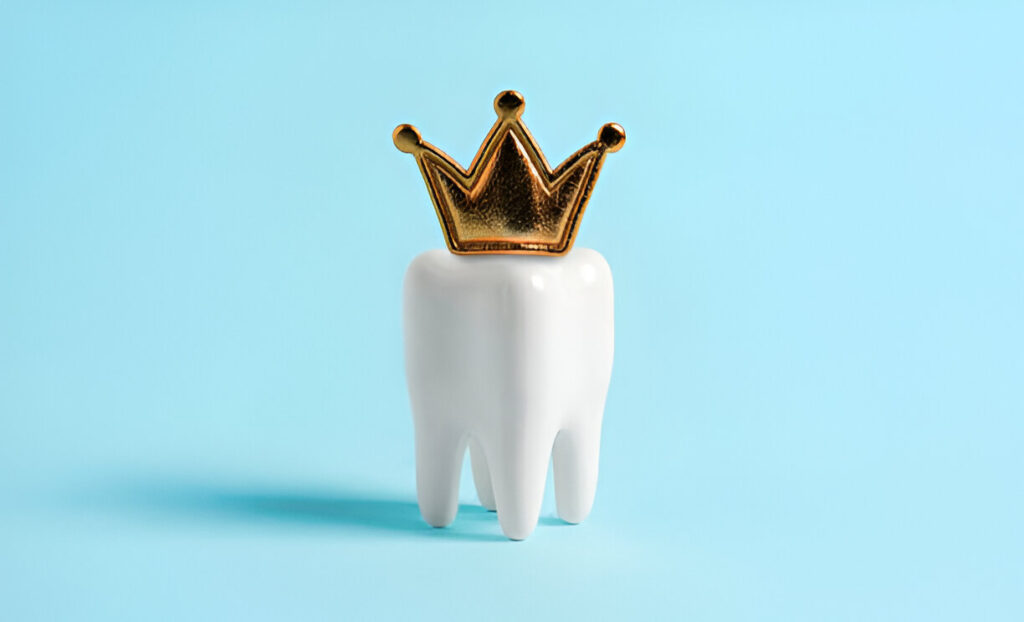Dental implants have completely transformed the way we approach tooth replacement. Whether you’re missing one tooth or several, implants provide a permanent, natural-looking solution that can restore both function and aesthetics. If you’re considering dental implants, or simply curious about what they entail, this guide will introduce you to the basics of dental implants, how they work, and why they’ve become such a popular option for those looking for a long-lasting solution to tooth loss.
What Are Dental Implants?
While the name alone may strike fear into some people, dental implants are actually relatively painless small titanium posts that act as artificial tooth roots. Each rod is surgically placed into the jawbone wherever there are teeth are missing, providing a strong foundation for replacement teeth. Over time, the implants fuse with the bone in a clever process called osseointegration, creating a secure anchor for crowns, bridges, or dentures. This fusion makes dental implants one of the most stable and durable options for replacing missing teeth. You can receive professional Dental Implants in Tavistock at Dartmoor Dental Clinics if this is an option you want to pursue.
How Do Dental Implants Work?
The dental implant process typically involves multiple stages:
- Consultation and Planning: The first step is meeting with your dentist to determine if you’re a good candidate for implants. This may involve X-rays or 3D scans to assess your jawbone structure and overall oral health.
- Implant Placement: During the surgery, the titanium post is placed into the jawbone. Local anesthesia is usually used, and the procedure is typically quick and minimally invasive.
- Healing Period: After the implant is put in place, there’s a healing period of several months during which time the implant fuses with the bone. This process ensures that the implant is securely anchored.
- Abutment Placement: Once the implant has completely integrated with the bone, an abutment (a small connector post) is attached. This attachment will hold the artificial tooth in place.
- Restoration: Finally, a custom-made crown, bridge, or denture is attached to the abutment, which completes the process and restores the appearance and function of the missing tooth.
Who Can Benefit from Dental Implants?
Dental implants are a clever, versatile solution for anyone missing one or more teeth. Candidates should have healthy gums, adequate bone density to support the implant, and be committed to maintaining good oral hygiene. However, even if you’ve experienced bone loss, procedures like bone grafting can help to build up the bone structure, making dental implants a viable option for more people.
Dental implants can benefit individuals in various situations, including:
- Single Tooth Replacement: When only one tooth is missing, a single implant can be placed to support a crown.
- Multiple Teeth Replacement: For those missing several teeth, multiple implants can be used to support bridges or partial dentures.
- Full Arch Restoration: For patients missing all of their teeth in an arch, dental implants can secure a full set of dentures, often referred to as implant-supported dentures or all-on-four implants.
What to Expect During the Healing Process
The healing process is a crucial part of the dental implant procedure. After the implant is placed, it typically takes anywhere between 3–6 months for the implant to fully integrate with the bone. During this time, you’ll need to follow your dentist’s instructions carefully to ensure proper healing. Doing so may include avoiding hard or chewy foods, maintaining excellent oral hygiene, and attending regular checkups.
While some discomfort or swelling is normal after surgery, it can usually be managed with over-the-counter pain medications and ice packs. Your dentist will provide detailed aftercare instructions to ensure you have a smooth recovery.
Final Thoughts
Dental implants are an innovative, reliable, and long-term solution for anyone seeking to restore their smile after tooth loss. By mimicking the function and appearance of natural teeth, they offer unparalleled benefits in terms of aesthetics, comfort, and oral health. If you’re considering dental implants, consult with your dentist to explore whether they’re the right option for you, and take the first step toward a healthier, more confident smile.


